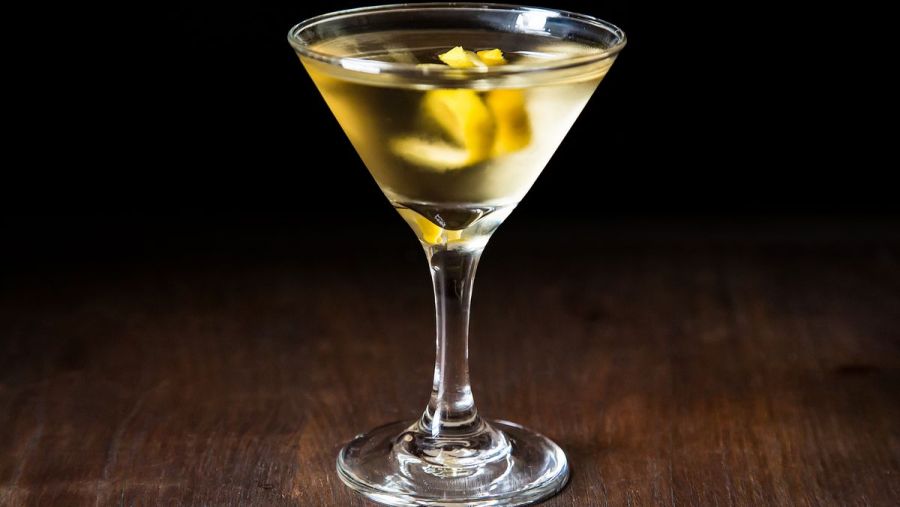Don't Let Liquor Liability Krampus Your Holidays weeping Santa with a martini

Foto by food52.com/recipes
Just like Krampus of European folklore punished children for misbehaving during the holiday season, liquor liability can put a damper on your holiday revelries. If you serve up booze at your office's holiday party, your business can be liable for any injuries or damages your intoxicated guests inflict on the public.
Worse than a lump of coal, huh?
To keep your employees and your business safe this holiday season, let's recap what you need to know about liquor liability and how to keep this risk in check when the eggnog starts flowing.
4 Ways Liquor Liability Can Land Small Businesses on the Naughty List
In most states, businesses that sell alcohol (e.g., restaurants, bars, etc.) can be held liable for alcohol-fueled incidents. But you're not off the hook if you only serve alcohol at parties. Many states have "social host" laws that can hold party hosts liable for damage intoxicated guests cause. (See our mini site's map of social host laws by state for more details.)
Social hosts may face legal repercussions if their drunken guests…
Cause property damage and bodily harm.
Commit sexual harassment and assault.
Are underage.
Cause a drunk driving accident.
It's hard to predict what mayhem too much alcohol may inspire. Before you know it, your accountant could slug a sales rep for spilling on her shoes, and you'd be stuck with the medical bill. Or an employee may leave the office party intoxicated, and then get behind the wheel of a car. Any injury, accident, or damage they may cause as a result of driving while drunk can fall on your business.
Even if your business is located in a state with no social host laws, you could be charged with civil or criminal wrongdoing for your business's role in these incidents. Read "Serving Booze over the Holidays? 4 Ways It Can Come Back to Haunt You" for more examples.
The Season of Giving (and Taking Precautions)
With booze-related mishaps waiting at every turn, how do you safely throw a holiday party for your employees? Just take proper precautions and plan for potential pitfalls. When hosting an employee get-together, consider…
Hiring a trained bartender. Having a trained professional serving up drinks can help control the flow of alcohol.
Arranging transportation options. Hiring a shuttle or assigning designated drivers will help protect your employees and other motorists.
Serving food and water. A fanciful feast can slow the absorption of alcohol and lessen its effects. Water is equally important to combat alcohol's dehydrating effects and offers an alternative to booze.
Staying vigilant. Keep an eye on employees to ensure they're consuming alcohol responsibly.
But even with these precautions, there's no way to serve alcohol and be risk-free. As a failsafe, you might want to consider purchasing a Liquor Liability Insurance policy.
What Is Liquor Liability Insurance?
Unless your business serves or sells alcohol regularly, you probably don't have Liquor Liability Insurance. To get you up to speed, here's what you need to know about this policy:
Liquor Liability Insurance can address booze-related risks. This policy can cover claims triggered by intoxicated guests when they injure others. It may pay for legal expenses and other damages. A standard BOP or General Liability policy typically doesn't include Liquor Liability coverage. However, you can usually add Liquor Liability to these policies as an endorsement. Another way to get the coverage? Purchase a Special Event Insurance policy specifically for holiday parties.
Special Event Insurance offers Liquor Liability coverage when you need it. Special Event policies are probably the easiest way for small businesses that don't sell alcohol to get Liquor Liability coverage. An added bonus: Special Event Insurance usually starts at $250 a year – a small price to pay for peace of mind.
You might need Liquor Liability Insurance if you host an event with booze. If your company hosts an event outside of its normal operations (e.g., a holiday party), you may need coverage. In some states, even if you only served someone one drink, you can still be liable if they go on to drink more elsewhere and cause damage (see FindLaw's Dram Shop Laws article for more details).
Editor :sigap







